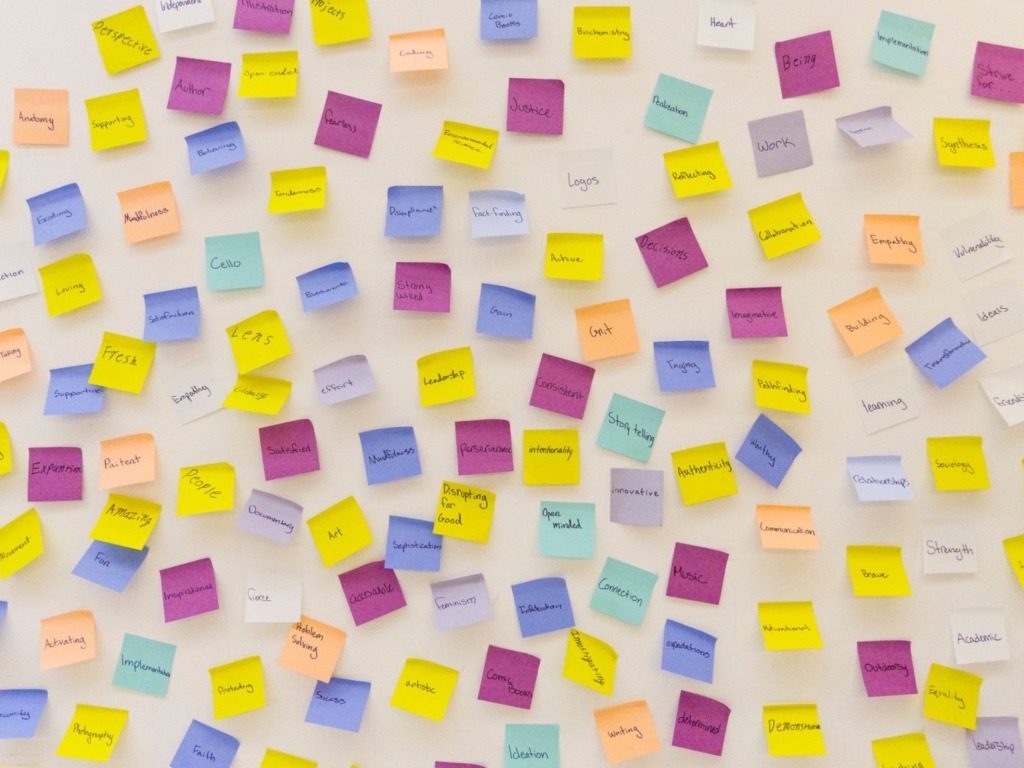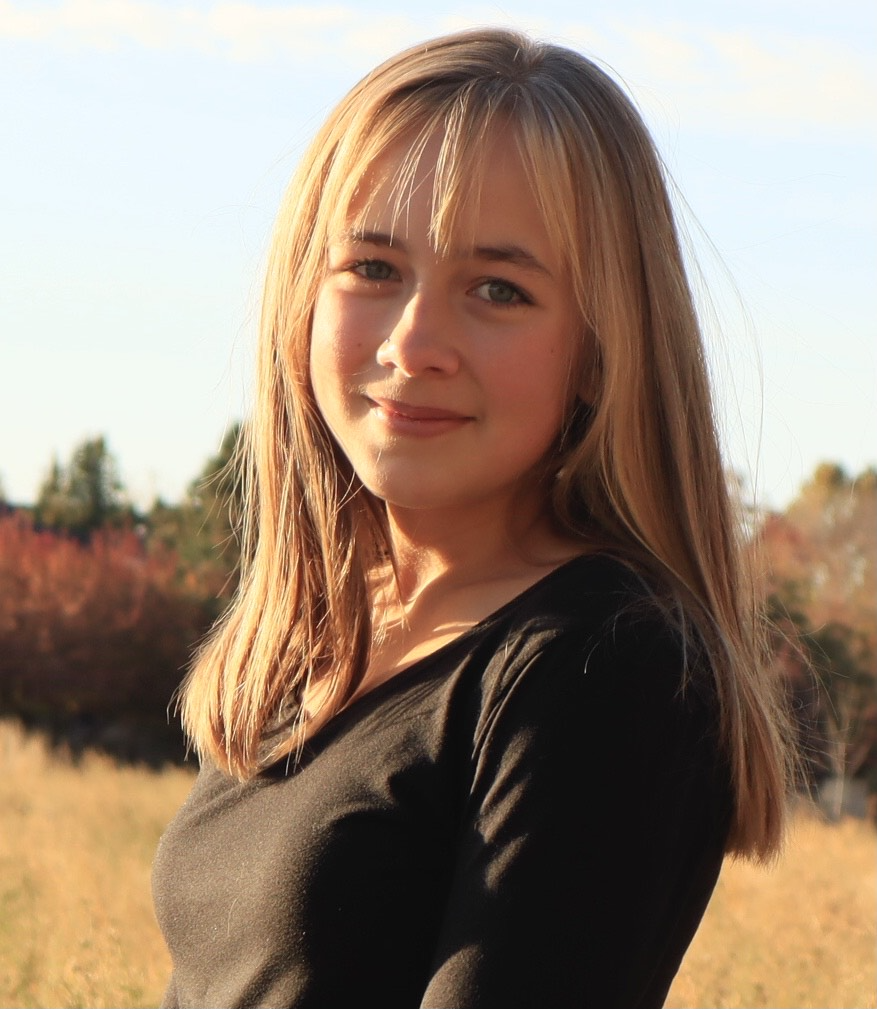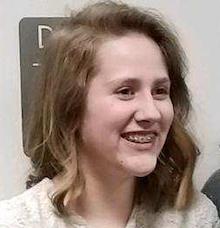I’m learning something new about myself every day.
Izzy Martin, One Stone Lab51 Learner
We sat down with Izzy and Mackenzie, two learners from Lab 51, One Stone’s student-led high school experience, to hear about their learning environment and latest passion projects.
Q: What is One Stone to the two of you?
Mackenzie: For me, One Stone is a space where I feel free to be authentic. It’s an environment where success is tangible. Here, I can combine all my passions and explore so many new things that interest me. For example, I’m Two Bird’s (learner-led design studio at One Stone) Video Director, giving me the chance to combine my interest in video work with the project topics I’m exploring.
Izzy: For me, One Stone is a space where everyone is there for you to succeed. The amount of support and excitement for all of the new things you’re embarking on and learning, including support from your peers, is so refreshing.
The fact that I’m friends with Mackenzie (a senior) and my teachers is refreshing, too. I feel like at my previous schools, younger learners were scared of the seniors or older kids. You can of course, have relationships with people in other grades, but there are always these divides between people, including the adults and learners. It feels harder to connect. Here, I feel like everyone’s a little bit more fluid because we’re here for the same reason. It just makes us join together more easily.
Q: What would you say that reason is? Why are you all here at One Stone?
Izzy: To seek out learning in a way that is relevant. Everything we’re doing here is applied to the real world, or at least most of it is. This means our Design Labs (year-long human-centered design projects) are focused on problems in our community. A lot of the projects we do independently, we end up sharing with other organizations or end up having workshops related to them for the community. There are so many different ways we are acting upon our work in real ways, and I think that makes it more relevant.
Q: How have your experiences at One Stone helped you learn about yourself?
Mackenzie: I’m learning something new about myself every day. We have a program called Living in Beta, and it’s basically pathfinding—Who are you and what’s important to you? Who do you think you are? What are your passions? In this program, I’ve learned more about my passions.
We start by thinking about what we are passionate about. In that process, it becomes clear how easy it is to focus on passions that were put on you by someone else. So through this program, I learned more about my own passions. Those that were really mine.
I learned so much. I learned that I love research, which has really shown through in my personal projects. I learned I am not as socially awkward as I thought I was. I learned to be a lot more comfortable around everyone.
I learned that it’s okay just to be yourself. As a result, I’ve just started to embrace who I am and who others are. I didn’t feel like I could be myself at the school I went to for two years before transferring to One Stone. I didn’t feel like I could wear my band t-shirts or be super vocal about the causes I cared about. And, here I can be. The experience here just helps you learn about yourself, and you are then more able to be who you authentically are in the world.
Izzy: At One Stone, you are forced to figure things out and grow. We’re not being told, “finish this worksheet, or write a paper, or make a slideshow that is three slides long.”
I think that has made me take more of a leadership role. I’ve learned that I really like organizing people, building on other people’s strengths. I like to see a big picture of a big vision or goal and then help people with different jobs work towards that goal.
At One Stone, you’re all on the same team…We’re all here to learn. We’re all there to grow, find ourselves, and form connections.
Mackenzie Davidson, One Stone Lab51 Learner
Q: How do you relate to the adults and mentors in your learning environment? Why does that matter?
Mackenzie: The relationships I’ve developed while at One Stone matter a lot. Coming from a more conventional school, it was so different. At my old school, it was “Mrs. This” or “Mr. That,” and you couldn’t connect with people on the level we can here. You had to sort of remain separate. The adults were there to lecture you. To be fair, I did have a few connections with some teachers, but it wasn’t anything like I’ve experienced here.
At One Stone, you’re all on the same team. I feel like that’s the biggest difference between the community here and at other schools. We’re all here to learn. We’re all there to grow, find ourselves, and form connections. Whereas at other schools I’ve experienced, you’re on two separate teams—the students are there to learn and the teachers are there to provide information.
In other settings, it feels like there’s sort of a mental block that has people assume the teachers aren’t there to grow, too. It is only about having the students learn. At One Stone, it’s the complete opposite. I have found that I have so much in common with a lot of the coaches that I spend the most time with. I have actual relationships with them, and they’ve shared that I’ve taught them things as well. We’re all just constantly growing and elevating each other. You can’t find that in other places.
Izzy: Everyone here, every student here, every teacher, everyone—they treat each person with equal opportunity.
In my past experiences, I’ve seen that teachers naturally like the kids who do their work and “work hard.” But, what is sad about this is that from what I saw, the reason a lot of times people didn’t do work in that setting was because they just genuinely did not understand it. It wasn’t that they didn’t want to do the work or weren’t interested. There might have been some block in their life impacting their ability to do the work (that most people just ignored). But, it wasn’t because they weren’t willing to work.
At One Stone, the coaches are here to see all of who you are, and they’re willing to get down there with you and figure out how to enable you to succeed.
Q: Can you describe a powerful learning experience you’ve had during your time at One Stone and why it was so meaningful?
Mackenzie: There are just so many experiences to share but I’ll talk more about my YLab Project, which is a year-long capstone project that all students work on in their final year at Lab51. My project is: “Wolves for People in a Hurry.” And, the way I describe it is: I’m trying to save the wolves. Pretty simple.
I have been a nature lover since I was a fetus. I’ve spent so much time outdoors, and I can’t comprehend the idea of wanting to hurt an animal. It drives me crazy trying to think of that, so a topic like this was an obvious one for me.
But, what got me interested in this specific project started last year. I did an experience called Dam It. We were talking about dams in Idaho and their effect on the natural ecosystem. I decided that I would compare recent legislation that removed restrictions on wolf hunting in Idaho with another legislative initiative that was addressing the dam issue.
I wanted to see where and when empathy plays a role in politics. I quickly realized that there wasn’t any empathy work done in either of these efforts (or at least, not that I could see). It seemed a lot of the agendas were coming from the politicians’ minds, rather than from their constituents.
So for this project, I decided that I wanted to address that and bring in some learner voice. I’ve been trying to bring more learner voice to the issue by conducting interviews, writing articles, and filming some videos. I’m taking some trips, job shadowing with the Idaho Conservation League’s Legislative Fellow, and acting as a student lobbyist for these environmental policies. It’s all helping me to explore my passions.
I’m graduating in about three months and trying to figure out what I’m going to do with life. This experience is helping me test out what it is like to bring all my different passions into play and has helped me learn even more about myself. I don’t give up very easily, apparently. After all the curveballs the legislatures have thrown at us, I just kept going, which is surprising to me. I guess when you’re passionate about something, that is what happens—you keep going.
When you give students the opportunity, you just need to give us the space to succeed, and we’ll get there.
Mackenzie Davidson, One Stone Lab51 Learner
Q: Izzy, how about you? What has been a particularly powerful learning experience from your time at One Stone?
Izzy: I’ve always been a musical person. Since I was a little girl, I was always humming, and I can even remember my Kindergarten teacher getting mad at me for it. Well, last year, it all came full circle. In January of 2021, I wrote a musical with a group of students, and it has now been performed multiple times in different venues.
I wrote the musical during an experience at One Stone called a Deep Dive, which is a four-day immersive experience. It is about a little boy whose mom is really sick and to escape, he ends up getting transported into a fairytale book. After writing the musical just to write it, I realized—why not go for it?
To begin, our team of students split into script-writing, music-writing, costume, and set groups. I was in the music-writing group where I wrote songs for each fairytale character and the lessons they imparted on the main character. From there, we cast each character using the personalities in our team that fit the most. After the writing process and casting were finished, we began rehearsal three times a week, commencing in a show for Foothills School of Arts and Sciences. 1st through 5th graders who, after a year of pandemic restrictions, were thrilled to be able to watch a live performance.
We also put the musical on for One Stone and a lot of the Lab51 community. It was pretty successful, so I decided why not submit it for this contest at the Boise Little Theater, a local theater in our downtown. And, it won!
My musical was performed for their summer show. It was absolutely surreal to see some of my songs performed by actual actors and for a paying audience. I’m now sitting here thinking, what if I wrote another one?
This actually brings me to a project I’m working on now. Through another Deep Dive, I began learning about a concentration camp that was located here in Idaho. I’d had no idea there were any here and realized that was likely true for most people here. I thought about how we learn so much about the Holocaust in schools, but we don’t learn about how a Japanese internment camp sits in our own state.
After learning all this, including interviewing and hearing stories from an actual survivor of Minidoka, I decided that I’d found the subject of my next musical. So, that’s what I’m doing right now. I have a rough plot, and I started writing some of the script, but I don’t have any music yet.
Q: As young people experiencing all of this, what do you want to say to adults who are working to transform education?
Mackenzie: Stop underestimating young people. Take my project about the wolves, where I’ve interviewed 15 people from all types of different professions and conditions. A common theme I’m experiencing is that they’re almost all still talking down to me. They all comment on my age with surprise. It makes me feel like they have low expectations for students.
And, while I know we are very privileged at One Stone because of all the tools and supports we have access to, I also know any young person is capable of doing meaningful work. When you give students the opportunity, you just need to give us the space to succeed, and we’ll get there.
It’s frustrating because we are so much smarter and more capable than so many people are willing to admit. We’ve seen it so many times. I mean, there’s a freshman in college tracking Elon Musk’s jets—we can do anything. If you put in the work, you’re going to get there, and that’s what we’re encouraged to do at One Stone. That is what I’d want adults to know.
Izzy: I would say don’t be afraid to release learners into the real world. I think sometimes we make school really contained, so all the conversations stay contained between you or your team and the teacher. The focus is on getting something done, a task or test or grade. It isn’t like that at One Stone. Here, the focus isn’t on getting something done; it’s on changing the world. That is a big difference.
What if educators’ goal was to give students the tools and the space to actually go into the world? This would be a big contrast to how it normally is: “First, let’s get her ready here, inside this building, and then we’ll go into the world later.” I think a lot of times, the most impactful learning happens when you’re out there, you’re struggling, and you’re trying to swim through it all.
After you do that, you basically realize you can actually do it. It’s not perfect, but it isn’t supposed to be. If we chose to do that, instead of just asking learners to turn in an assignment to get a grade that doesn’t really matter, so much good would come from that.
Mackenzie: All of the greatest movements of our time have been started by teenagers. Black Lives Matter, started by a teen. March for our Lives was started by a teen. Varying women’s marches that have been very successful were all led and run by teens. All of this was in the real world; these were real issues, impacting real people, right now.
Technically, I’m an adult since I’m eighteen now, so I need to take my own advice. Adults should stop underestimating us, and we should stop underestimating ourselves. When I started this project to save the wolves, I was so insecure about being so young and trying to tackle such a massive task, but slowly and gradually, I’ve gained confidence that I can do this.
I want to say something to learners. Whatever you’re passionate about, whenever you have that little feeling in your gut that this is something you want to do… I know this is cheesy but just start.
Izzy Martin, One Stone Lab51 Learner
Q: Anything else you think our readership should know?
Izzy: I want to say something to learners. Whatever you’re passionate about, whenever you have that little feeling in your gut that this is something you want to do… I know this is cheesy but just start.
Mackenzie: Also to learners. You can get as far as you want to go—way further than you might think. Even if it is just an email you send someone about something you care about, it is going to lead somewhere. It might even take a few years, but it is like starting to plant seeds. Whatever those seeds grow into could be really impactful.
For example, I interviewed a biologist and professor at the University of Colorado Boulder who, it turns out, is very good friends with Jane Goodall. So, now I’m one connection away from Jane Goodall. I never would have imagined that could be possible.
So, we can do anything we set our minds to doing—like Izzy said, just start.


